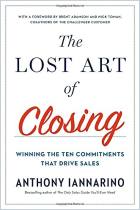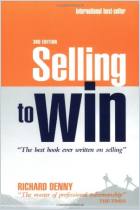Únase a getAbstract para acceder al resumen.

Únase a getAbstract para acceder al resumen.
Greg Bennett
Consultative Closing
Simple Steps that Build Relationships and Win Even the Toughest Sale
AMACOM, 2006
¿De qué se trata?
Work closely with your clients and close more sales by taking things one step at a time.
Recommendation
Often, salespeople – even those who already practice "consultative" selling – are reluctant to ask for the sale because they don’t want to jeopardize a client relationship they’ve worked hard to develop. Yet, the whole point of developing the relationship is to generate sales. Sales trainer Greg Bennett offers a solution to this conundrum in the form of his "mini-steps" sales approach. He explains how salespeople can break the sales process down into small, actionable steps, to help the client buy into it and advance the sale, without appearing self-serving or pushy. His system reworks existing sales practices, so some of his concepts may feel familiar, but he points out that many salespeople, and even sales managers, are too comfortable living in "Maybe-Land." He advocates taking up permanent residence in "Reality-World" by asking for an answer, even if that answer is "no." getAbstract encourages those who want to refine their consultative-selling techniques to read Bennett’s book.
Summary
About the Author
Greg Bennett has been a consultant and sales trainer for 30 years. He is a partner in a sports enterprise company that owns the Denver Nuggets, the Colorado Avalanche and the Colorado Rapids teams.

















Comment on this summary